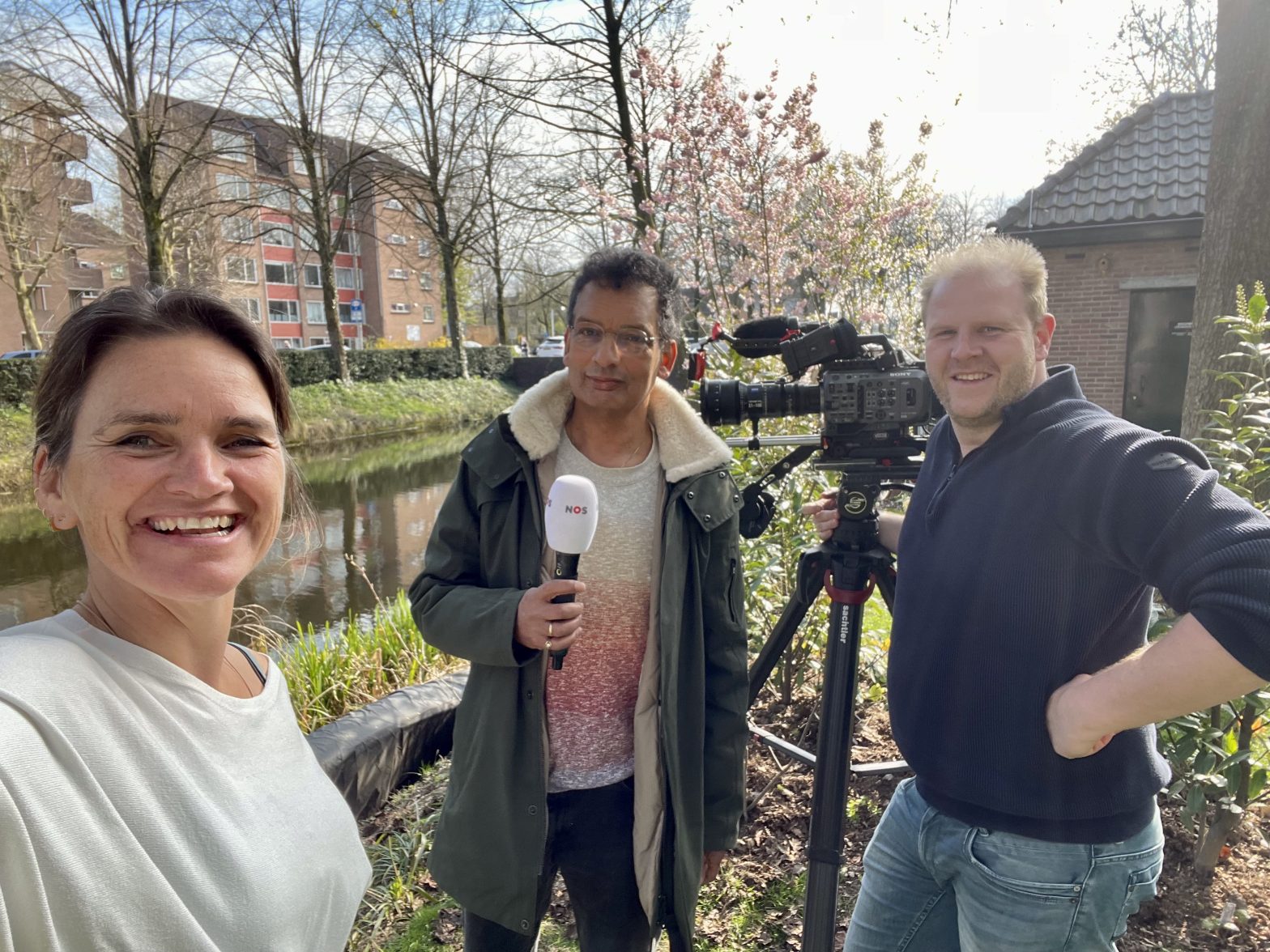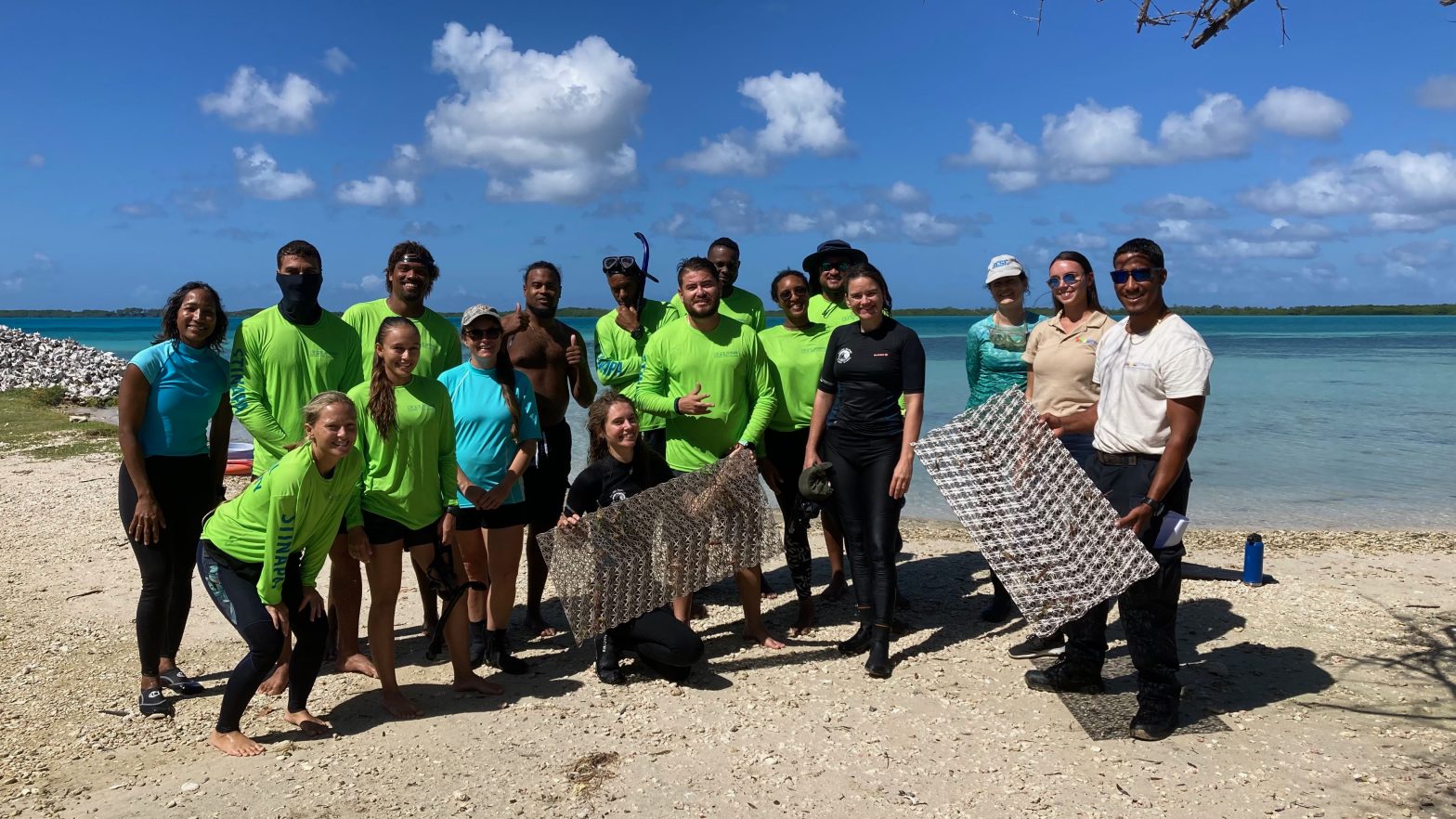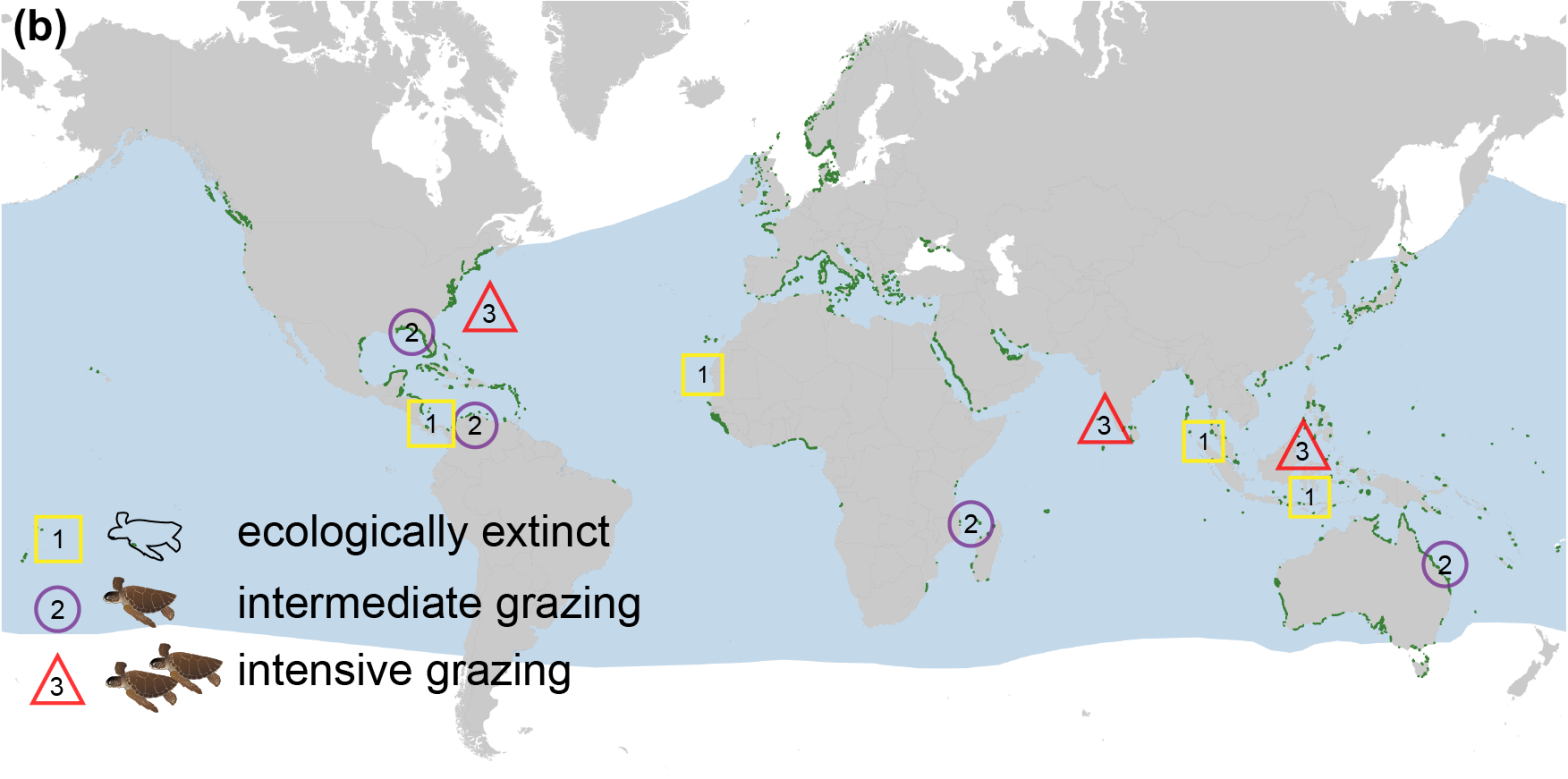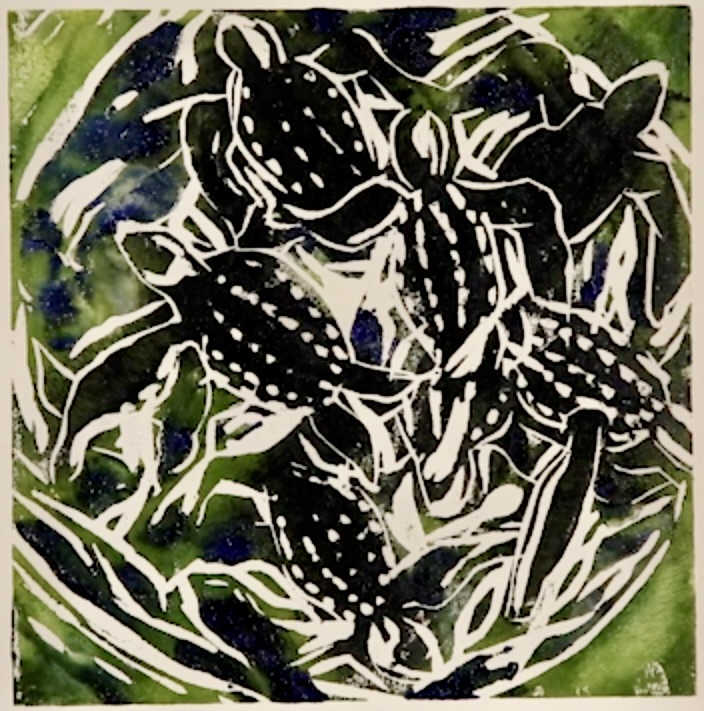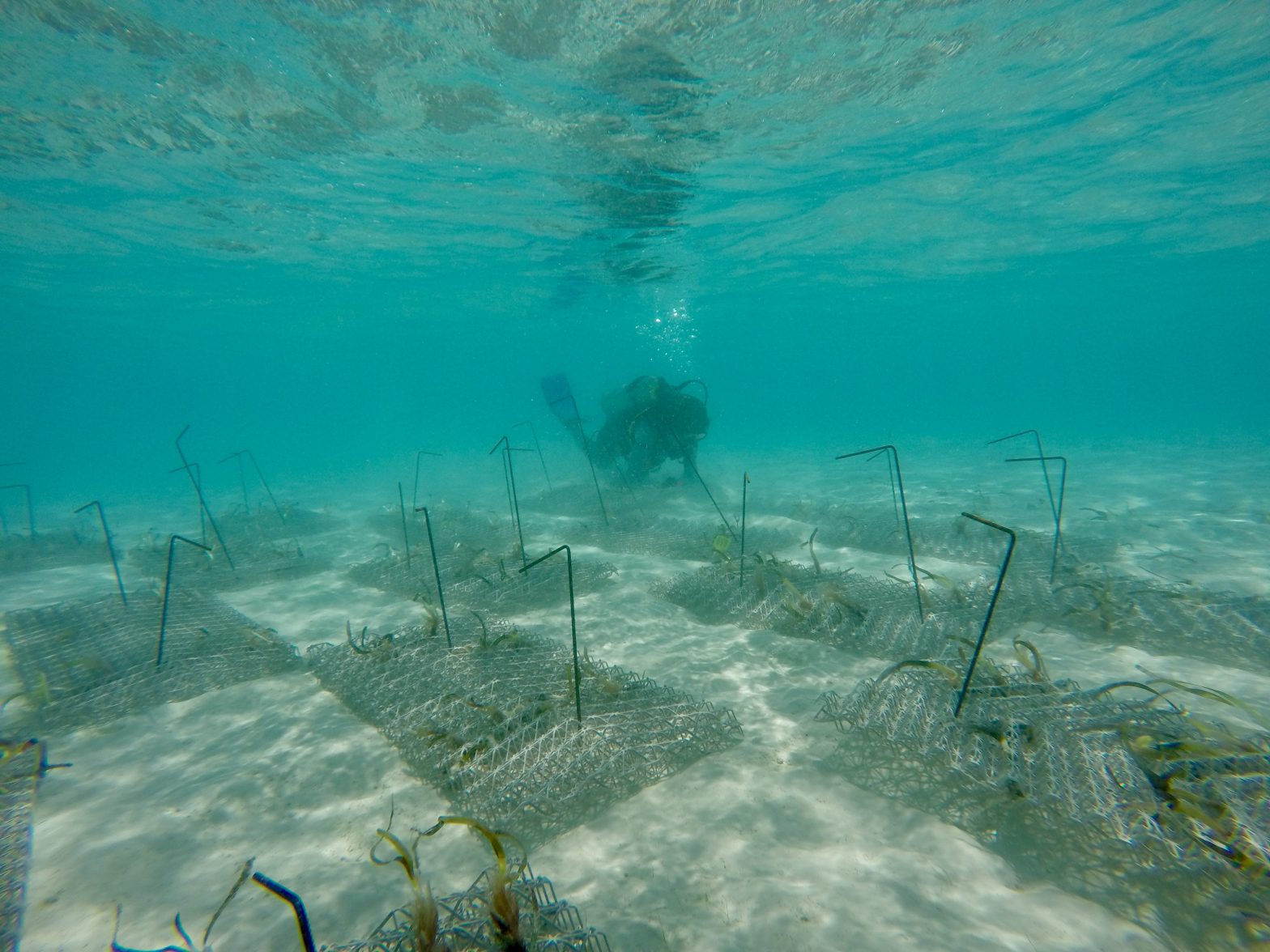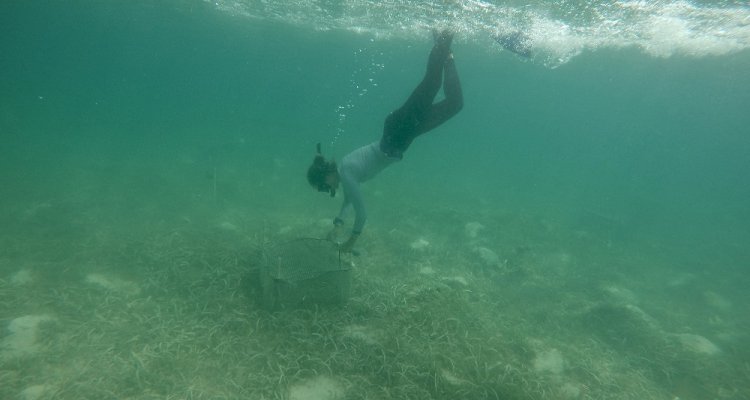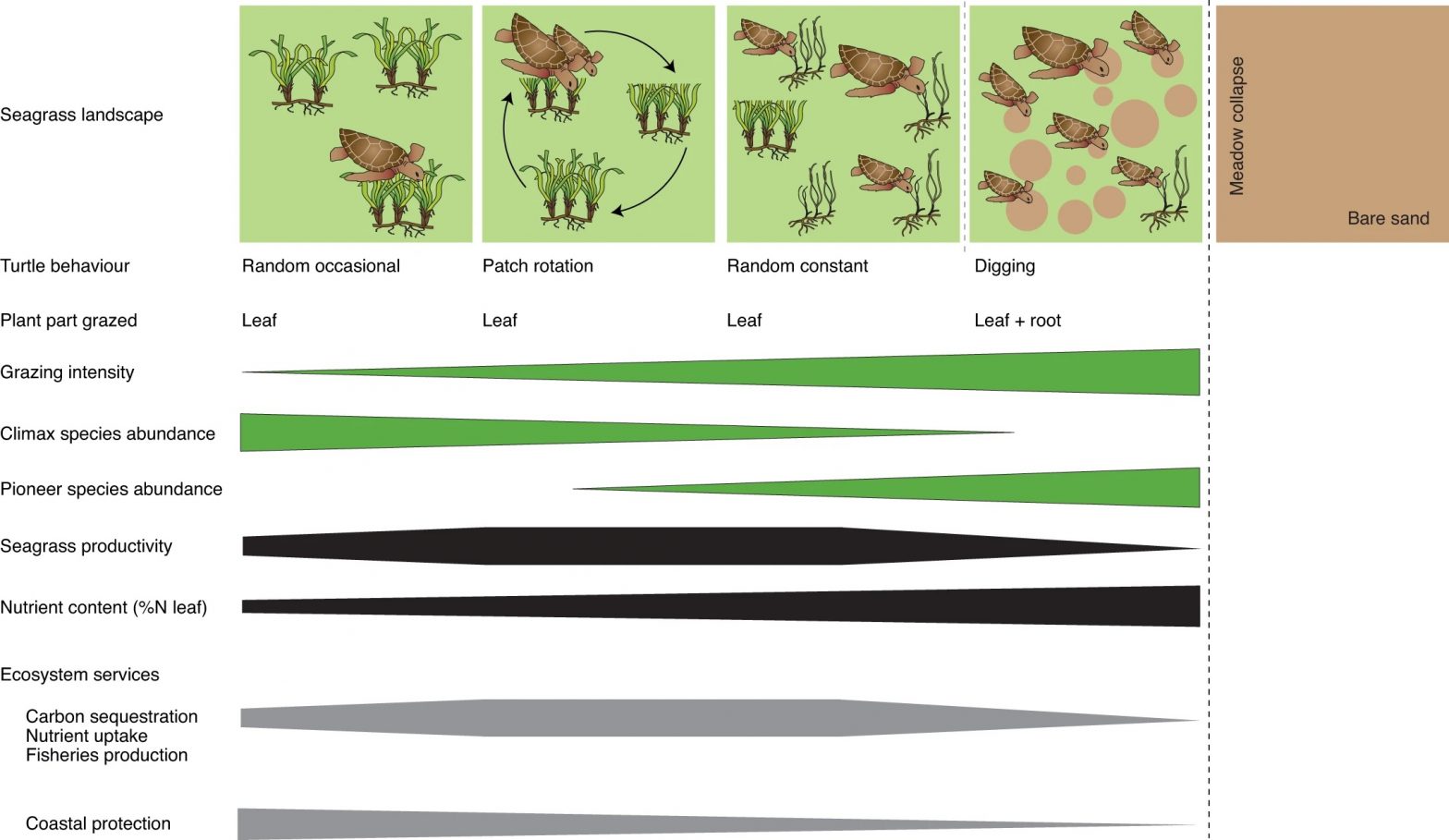Does deep learning and coding deter you from using it? As ecologists, we experienced that too, but we have dived in. In our new paper, led by Rebecca James, we employed deep learning to automate the analysis of aerial drone imagery to assess spatial patterns within subtidal #seagrass meadows and the distribution of turtles UNDERWATER 🌊🐢.
Now you can try deep learning on your own system because we provide accessible, open-access tools to automatically classify vegetation and animals in aerial imagery.
🌿🚁 Paper highlights:
Concerns over record ocean water temperatures: ‘No time for ecosystem recovery’
‘World’s average ocean surface temperature measured 21.1 beating the previous high of 21C set in 2016’. As a scientist, I was asked to explain to national news (NOS Saturday evening news) the impact of rising temperatures and the resulting frequency of marine heat waves on ecosystems, together with Erik van Sebille.
Continue reading “Concerns over record ocean water temperatures: ‘No time for ecosystem recovery’”Field trip and workshop to map Indonesian seagrass resilience
Time to go back to Indonesia. A short report on the field trip and workshop:
Continue reading “Field trip and workshop to map Indonesian seagrass resilience”Why seagrass needs space – a long read on the 1st world seagrass day
🌊 #Longread – Despite the many threats, seagrass habitats still have the potential to store large amounts of carbon and restore the balance of the sea. On 1 March 2023 – the very first World Seagrass day – we explain why we need to protect and rewild the sea, and share how camera-equipped sea turtles and tiger sharks can help us do it:
#Rewilding, #Seagrass, #ClimateChange, #Biodiversity
Continue reading “Why seagrass needs space – a long read on the 1st world seagrass day”Do you see the “S” of “seagrass” planted in the sand?
Last week we (Karin Didderen, Fee Smulders, and I) were invited to the seagrass restoration week in #bonaire ! We started a new seagrass restoration site in Lac Bay as part of the Lac Pa Semper – RESEMBID project (https://stinapabonaire.org/nature-projects/lac-pa-semper/), coordinated by Jessica Johnson. Most inspiring was the training of
Continue reading “Do you see the “S” of “seagrass” planted in the sand?”Seagrass ecosystem multifunctionality under the rise of a flagship marine megaherbivore
How does ecosystem functioning change now megaherbivores are returning? In our new paper today in Global Change Biology we show that the return of the green turtle has strong effects on seagrass ecosystem functions and can even reduce multifunctionality with ~25%. Read the short & simple summary below.
Continue reading “Seagrass ecosystem multifunctionality under the rise of a flagship marine megaherbivore”Documentary ‘Leatherback’
— Update, Sept 2022 — The documentary won the “Gouden Hert” competition 2022 at the International Short Films Festival in Arnhem.
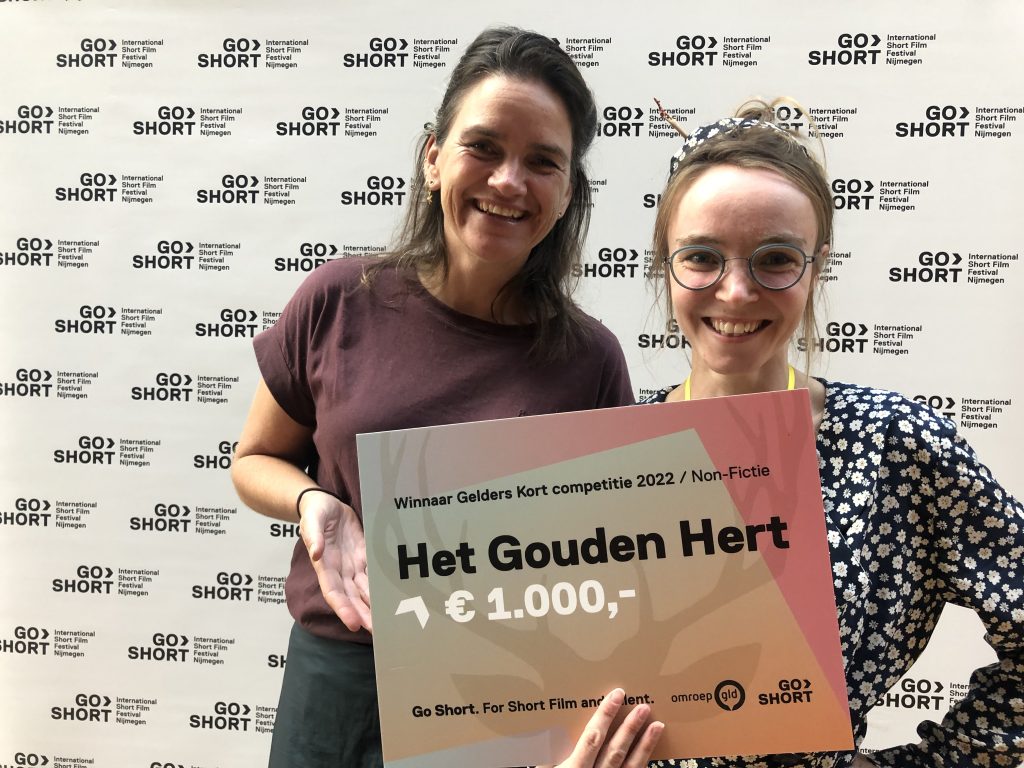
In 2021 I was happy to be involved in the making of a documentary with Artist Mirthe Dokter, together with Rian van den Boom and others.
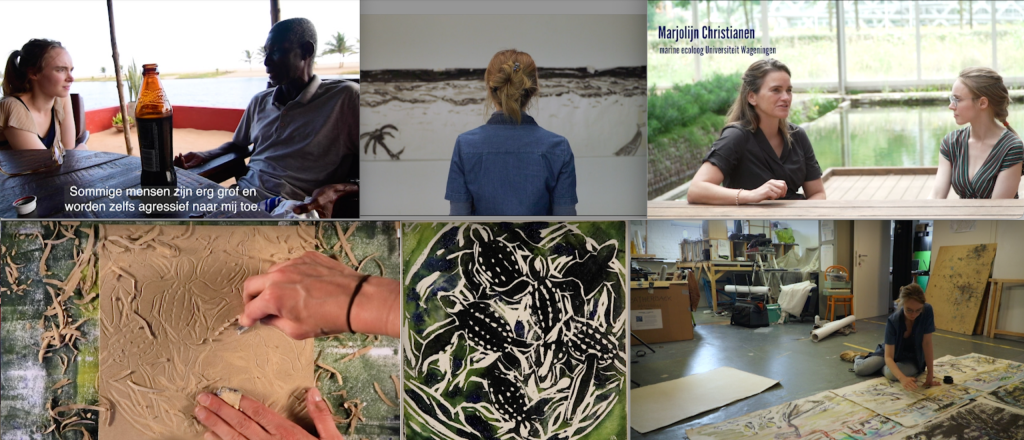
Continue reading “Documentary ‘Leatherback’”This unconventional docu shows an intriguing portrait of the leatherback sea turtle, threatened with extinction. In Ghana, artist Mirthe meets ‘Uncle Raf’, the leader of a turtle conservationists team in a small fishing town. Slowly, she gets entangled in the web of all the difficulties that come with protecting this ancient animal. Virtual artists Mirthe records her story in a painted diary, that she shares with a marine ecologist, Marjolijn, from the Netherlands.
Restoring Bonaire’s seagrasses and mangroves a checkerboard at a time
Seagrass and Mangroves on Bonaire can use a helping hand. Water quality, tourists (trampling), Sargassum tides and more, have caused rapid decline of seagrasses and mangroves. Based on results from an earlier pilot, last week we launched a larger scale seagrass restoration project to help counter this decline. And also set up pilots to test the use of a new method for mangrove restoration alongside other ongoing methods. We used biodegradable mats that need only a little amount of donor material. The structure of these mats stabilize the sediment for the young plants to facilitate settlement, mimicking the natural effect of nature root mats.
Continue reading “Restoring Bonaire’s seagrasses and mangroves a checkerboard at a time”Fish can protect ecosystems from invasive seagrass
One grazer is not like another. Where sea turtle grazing gives way to invasive eelgrass, fish grazing has the opposite effect. “Protected areas with abundant native grazing fish may be more resistant to expansion of invasive eelgrass.
Continue reading “Fish can protect ecosystems from invasive seagrass”Savannas of the sea: “Pristine seagrass meadows were often heavily grazed”
Seagrasses are important for our coastal protection, biodiversity and carbon sequestration. But contrary to popular belief, dense, waving seagrass meadows with long foliage are not necessarily more natural. In a new publication in Nature Ecology & Evolution, researchers from Wageningen University & Research and Radboud University argue for a more nuanced picture of natural seagrass meadows being dense vegetation interspersed with areas grazed by sea turtles. This calls for a change in our nature management practices.
Continue reading “Savannas of the sea: “Pristine seagrass meadows were often heavily grazed””
